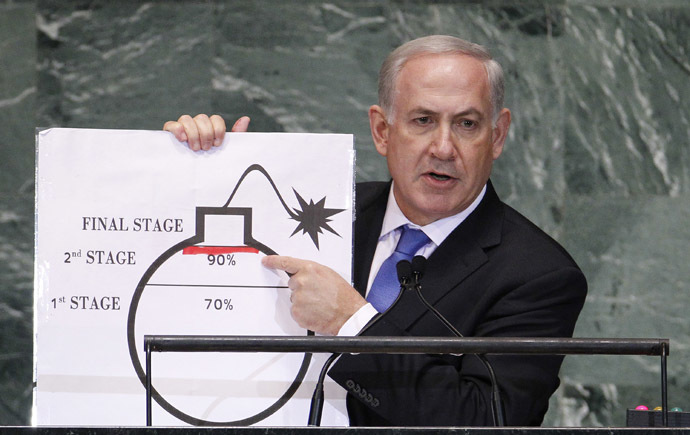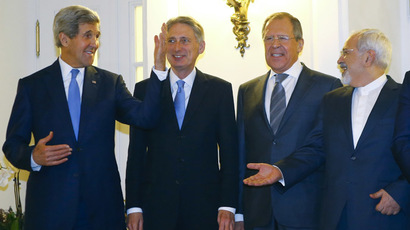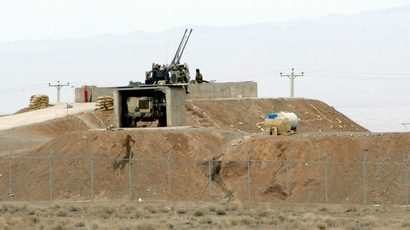‘Iran wants to conquer MidEast’: Israeli PM slams prospect of nuclear deal
The possible signing of a deal on Iran’s controversial nuclear program is “dangerous” as it may be the only thing Tehran lacks to establish control over the whole of the Middle East, Israeli PM Benjamin Netanyahu says.
Iran’s nuclear talks in Lausanne, Switzerland, which entered the final stage before the March 31 deadline, have confirmed “our concerns and even worse," Netanyahu told Israeli public radio.
According to the recently re-elected right-wing prime minister, the "’Iran-Lausanne-Yemen axis" poses a threat to all of humanity and must be stopped.”
The nuclear deal, combined with the control Tehran already has over governments in Iraq, Syria and Lebanon, could allow Iran to “conquer” the Middle East, Netanyahu declared.
Previously, Israel’s deputy foreign minister, Tzahi Hanegbi, told public radio that the Jewish state "will not be bound by an accord concluded by others (Iran and P5+1 powers – China, France, Russia, the UK, and the US, plus Germany) and will know how to defend itself."
READ MORE: Failure to secure Iran nuclear deal could spark MidEast arms race – UK Foreign Sec
Hanegbi expressed opinion that Britain, France and Germany have “no illusions that Iran will respect its commitments” if the nuclear deal is struck.
The participants of the Lausanne talks have expressed cautious optimism about a possible breakthrough, despite the current round of negotiations going on for 18 months and already missing two deadlines.

“It's going alright. We're working,” John Kerry, US Secretary of State, said after a meeting with Iranian Foreign Minister Mohammad, Javad Zarif, early Sunday.
On Saturday, German FM Frank-Walter Steinmeier insisted that the talks were in the “endgame,” but added that "the final meters are the most difficult but also the decisive ones," AFP reported.
Meanwhile, Russia warned that Saudi Arabia’s airstrikes against Houthi rebels in Yemen, which are believed to be backed by Iran, are "having an impact" on the talks.
"We hope that the situation in Yemen will not bring about a change in the position of certain participants," Sergey Ryabkov, Russia's deputy foreign minister, told RIA Novosti news agency.
Iran was placed under harsh international sanctions as the West believes that it is developing its nuclear program to make an atomic bomb.
The claims have been denied by Tehran throughout 12 years of tensions, as it claims that the nuclear energy is needed purely for civilian purposes.
READ MORE: US proposes to let Iran operate fortified nuclear site - reports
Israel has been gravely concerned by the nuclear program of its main geopolitical rival to the point that it even threatening military action against Iran to prevent its development.
The settlement now being discussed in Lausanne would reportedly see Iran scale down its nuclear program and agree unprecedented inspections of its activities in the field.
In return, Tehran asks for P5+1 powers to lift the UN sanctions in its entirety, while the international negotiators only propose the gradual easing of the restrictive measures – so that they could be quickly reinstated if Iran fails to comply with the deal.
The sides hope to agree broad outlines for an accord by Tuesday midnight and if they succeed a series of complex annexes containing all the technical details is expected to be prepared by June 30.














